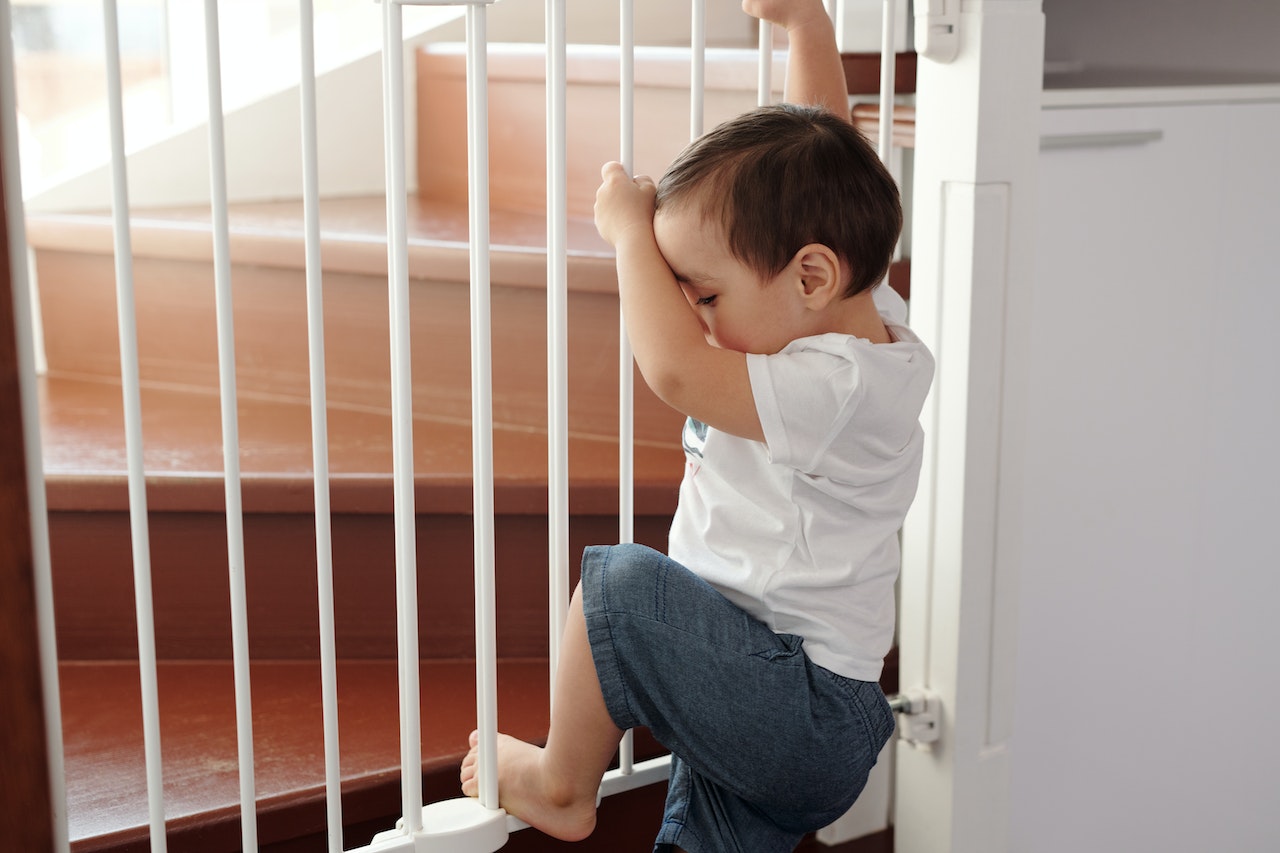The purpose of a home study is to evaluate the prospective adoptive parents’ home environment and determine whether it is suitable for a child. The study is usually conducted by a social worker or agency representative who visits the home and interviews the prospective parents. Home adoption studies typically evaluate the home’s safety, the prospective parents’ ability to care for a child, and the overall stability of the family. It’s an important step to ensure that the child will be in a safe and loving home.
How should you prepare for a home adoption study?
Preparing for a home adoption study can be a daunting task, but it’s an essential step in the adoption process. The first step is to educate yourself on the process and what to expect. You’ll need to make sure your home is safe and suitable for a child to live in. This includes making any necessary repairs, ensuring all necessary safety features are in place, and creating a welcoming and child-friendly environment.
You’ll also need to complete a thorough home study application, which typically includes information about your personal and family background, your lifestyle and values, your health history, and your finances. You’ll need to provide references and undergo criminal background checks and fingerprinting.
During the home visit portion of the study, a social worker will come to your home to assess your suitability as a parent and to ensure that your home is a safe and nurturing environment for a child. They’ll look at your living space, your neighborhood, and your overall lifestyle. They may also conduct interviews with you, your partner (if applicable), and any other household members.
It’s important to be open and honest during the home study process and to be willing to make any necessary changes or improvements to your home and lifestyle to meet the needs of the child you hope to adopt. By doing so, you can increase your chances of a successful adoption and create a safe and loving home for your child.
Other safety considerations
An adoption home study provides a comprehensive overview of your preparedness to provide a safe and loving home to a child. That said, it isn’t an exhaustive list of every aspect of home safety. Here are a few key items that are critical to home safety that may not be a part of your home study:
- Childproofing, which involves securing cabinets, drawers, and other areas where hazardous materials may be kept. It’s also important to ensure that any electrical outlets within reach of children are properly covered and that cords are out of reach. Staircases and windows should be secured with safety gates or bars to prevent falls, and all doors leading outside should have secure locks.
- Attractive nuisances are objects or conditions that can be enticing to children but also pose a danger, such as swimming pools or construction sites. It is important to address attractive nuisances to prevent accidents and potential liability issues.
- Home security is essential to keep children safe from potential hazards such as burglars, intruders, and fires. A well-secured home with alarms, security cameras, and reliable locks can give parents peace of mind and help prevent accidents or crimes that can harm children.
- Home insurance is important to have when you have children to protect against unexpected events, such as accidents or damages. It can provide financial protection and cover the cost of repairs or liability claims that may arise.
Expert advice
Here’s what the experts told us about home adoption studies
What is a home study?
A home study is a process that approves someone to become eligible to adopt. It is required in Fl and across the United States. It includes personal interviews, touring the home to ensure it is safe for children, background checks, references, physicals, financial information/stability…all this is a part of what makes up a home study.
Amy Imber | Executive Director of Connecting Hearts
Also other of our experts provide some more information on what a home study is,
A home study is an independent evaluation of the suitability of a particular household to receive children. A qualified home study evaluator will assess the members of the household and the premises in a home study report, which covers certain required matters and lists the strengths and weaknesses of the home and residents. Home studies are not as intrusive as psychological assessments, for example, but try to assess the suitability of the total home environment, including the habits of the household members, their attitudes towards parenting and discipline, economic resources, preparedness to receive a child, and safety of the physical household. Generally, home studies do not make recommendations for placement, although they may include recommendations such as adding child safety devices or making repairs, but must be “approved” or “disapproved” by an authority such as Child Protective Services, foster agency, or a court.
Joseph Hoelscher | Managing Attorney for HGC
What does a home study consist of?
Home studies are tools child welfare workers use to assess whether a potential home provides the proper environment for a child to live and thrive. During a home study, workers will gather information on a family’s motivation to adopt, health status, family relationships, and opinions about discipline. Additionally, they explore sensitivity about abused and neglected children, those coming from different socioeconomic, ethnic, and cultural groups, and whether they have the ability to care for children with particular kinds of behavior or backgrounds.
Workers also examine how adoptive families feel about relationships with birth parents, siblings, and other relatives.
Mark Wilson | Media Relations Specialist for Texas Department of Family and Protective Services
What happens during a home study?
A home study involves submitting personal information, including health and financial records. Information is drawn from interviews, training, and third parties. The home study preparer also completes an inspection of the home. This written assessment outlines the prospective adoptive family’s suitability for adoption.
Jenna Stocks | Director of Social Services for Adoptions From The Heart
How much does a home study cost?
The cost of a home study can vary depending on where you live, the licensed child-placing agency that is handling the home study, your income level as well as many other factors. In Indiana, home studies cost as little at under $1,000 to as much as $4,000. Different license child-placing agencies provide different levels of service with corresponding levels of pricing. Some licensed child-placing agencies may also have religious affiliations that require prospective adoptive parents to meet different religious standards. It is important to work with an agency that you feel comfortable working with that is also within your budget.
Grant M. Kirsh | Adoption Attorney for Kirsh&Kirsh Adoptions
How do you finda home study provider?
Seeking a home study provider is SO Important that they are interviewed. Making lots of questions and finding a connection with that provider is crucial. We suggest checking out social media pages, researching their website, and asking for referrals; if a provider cannot give a list of referrals that should be a red flag; anyone can have “good comments” on their website, and sometimes these comments are purchased so doing research is key.
- Lori A. Standard | Admin Director-Home Study/Post Placement Coordinate & Adoptive Family Advocate for Abiding Love Adoptions
How can you make sure your home meets safety regulations?
There are many things, we as an adoption agency, do to make sure a home meets safety regulations:
There should be no obvious health concerns or hazards inside or outside the home. There should be adequate square footage for the number of people who will be living in the home and each bedroom must be appropriate square footage for the number of children residing in the bedroom. All dangerous tools or hazards must be stored in separate locked locations. Archery equipment and any other weapons are handled in a similar manner. The home must have smoke detectors located near bedrooms, a carbon monoxide detector, and a fire extinguisher. All medications, cleaning supplies, alcohol, and tobacco must be kept out of reach of children. First aid supplies should be readily accessible. Safeguards should be in place to protect young children from accidental contact with fireplaces, space heaters, and other hot surfaces. There should be the safe disposal of ashes from coal or wood-burning fireplaces. All household members should be familiar with an escape plan in the event of a fire. The home should have at least two exits and the exits are not obstructed. The doors should be operable from the inside without the use of a key or special effort. Windows in bedrooms should be adequate for emergency escape or rescue. House numbers should be clearly visible from the street and a phone should be accessible at all times. Unused electrical outlets should have safety shields if young children are in the home. Household pets should be current on vaccinations and a copy of their records provided for the applicant’s file. Children should be taught how to safely handle pets and children should be protected from potentially dangerous pets.
- Kristi Roberts | Adoption Program Coordinator for Wyoming & Colorado Children’s Society
How can you make sure your home meets fire safety regulations?
Your home study provider will provide specific fire safety regulations for your home based on the guidelines in your state. Typically, they include working smoke detectors in the bedrooms and other common areas. Fire safety regulations in your area may include escape ladders from second-story homes, certain types of smoke alarms, or even roof sprinklers. While it may seem difficult to add these things, remember your home study provider’s goal is to ensure your home is safe for your family and your adopted child.
- Heather Featherston|Vice President for Lifetime Adoption
What are the best books for adoptive parents?
Here are our recommendations:
- The Yes Brain by Tina Payne Bryson
- The Power of Showing Up by Tina Payne Bryson
- The Connected Child by Karen Purvis
- The Connected Parent by Karen Purvis
- Be the Bridge: Transracial Adoption
- Kendall Pace Monroe|Founder|Director for The Way Home Adoption
Preparing for a successful adoption home study can be a daunting task, but it doesn’t have to be. With proper planning and attention to detail, you can create a warm and welcoming home environment that will impress the social worker and help you to be approved for adoption. Remember to stay organized, be honest, and keep an open mind throughout the process. And most importantly, try to relax and enjoy the journey as you prepare to welcome a new member into your family.




